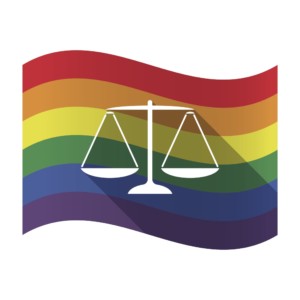Grace Hill Training Tip of the Week
Sex Discrimination and the Fair Housing Act

In recent years, the LGBT community has earned additional rights under the law in many different contexts. From same-sex marriage recognition to restroom access corresponding to a person’s gender identity, the law is constantly evolving.
The Federal Fair Housing Act (FHA) does not specifically include sexual orientation and gender identity as protected classes. However, discrimination against a lesbian, gay, bisexual, or transgender person may be covered by the FHA if it is based on nonconformity with gender stereotypes.
For example:
- If a housing provider refuses to rent to an LGBT person because she believes the person acts in a manner that does not conform to her notion of how a person of a particular sex should act, the person may pursue the matter under the Fair Housing Act as discrimination based on sex.
- If a property manager refuses to rent to a prospective resident who is transgender because of the prospective resident’s non-conformity with gender stereotypes, this could be discrimination on the basis of sex under the FHA.
Despite the relative lack of protection under the FHA, both the judicial system and the United States Department of Housing and Urban Development (HUD) have in recent years expanded anti-discrimination protections for the LGBT community. The law is clearly trending towards recognizing sexual orientation and gender identity as protected classes under fair housing laws. In fact, it is already the law in many states and localities.

Remember, every interaction you have with prospective and current residents is an opportunity to comply with fair housing laws and prevent discriminatory housing practices. By treating everyone fairly, equally, and consistently, you help reduce the risk of violating fair housing laws and create a welcoming atmosphere and sense of community for your customers.
And, fair housing laws protect people from discrimination throughout all stages of your interactions, not just after they become residents of your community. From the first contact, whether by phone call, email, text, or in-person, you are responsible for complying with fair housing laws and treating all people in a non-discriminatory manner.
Even if LGBT persons are not technically considered a protected class under the laws applicable to the area your company or property is located in, there are valid reasons for maintaining a company policy prohibiting LGBT discrimination, and for ensuring employees understand that all people must be treated in a non-discriminatory manner.


 Customer Support
Customer Support




